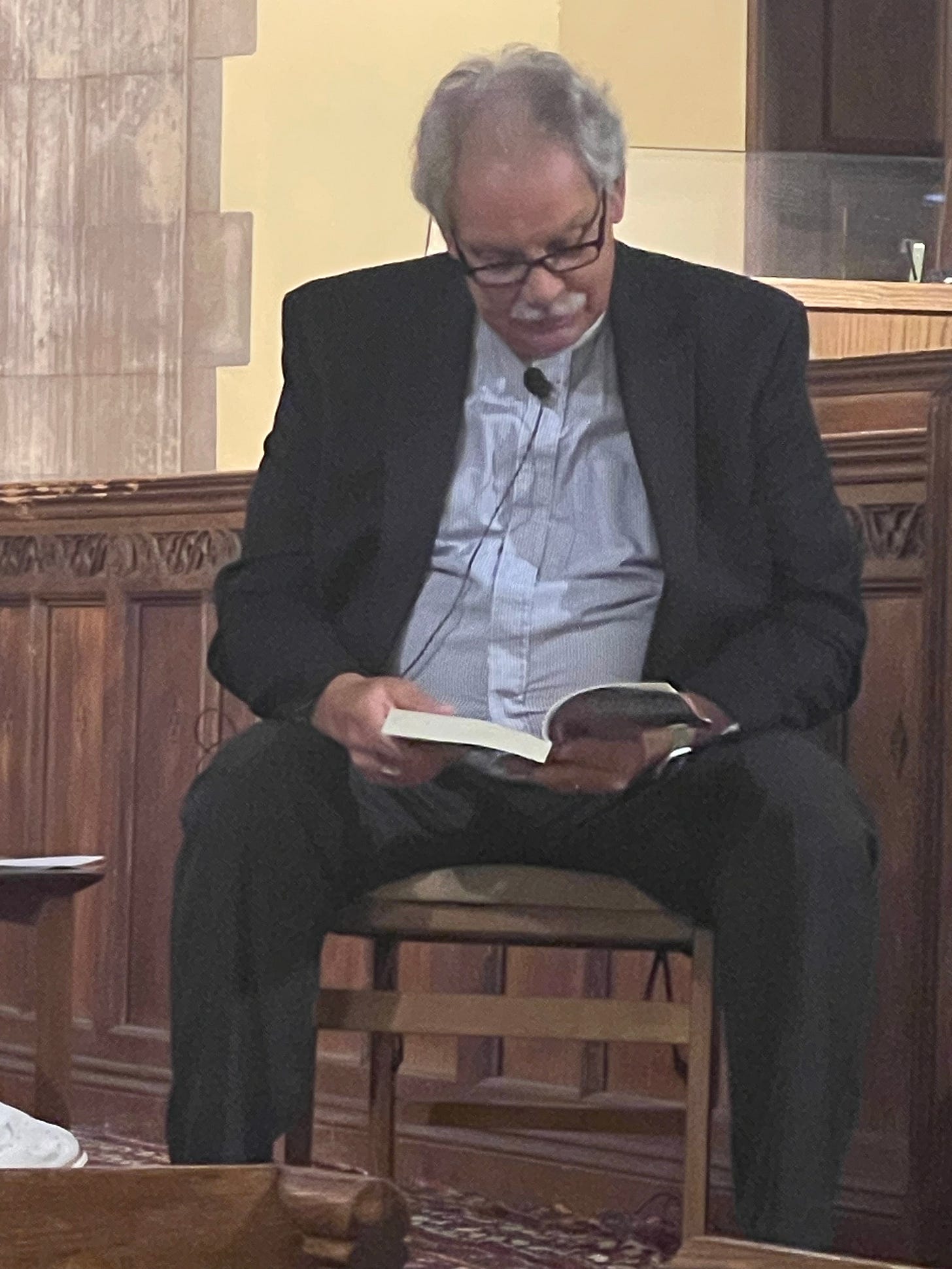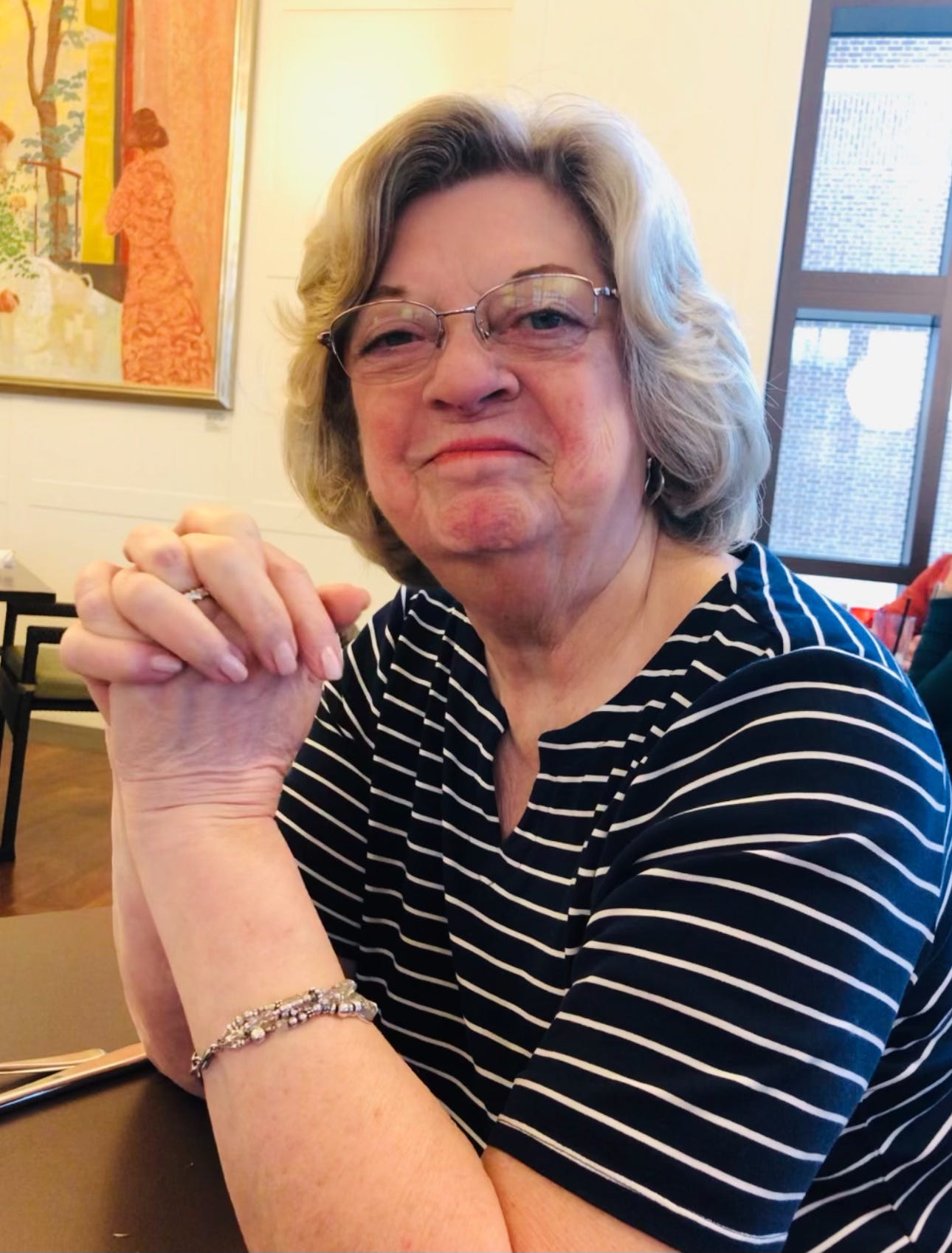If you have been following my posts, you have this image of me that may not be 100% accurate. I don’t know why that would be surprising since all of us who put our thoughts, dreams, and visions out into the world through words, art, music, or whatever tend to bury ourselves in the work rather than reveal ourselves openly.
But I am a deacon, retired, and that means I try to share what I believe to be true. (A deacon is a member of the clergy in the Christian church and the main job of the deacon is to serve.) The first deacon in the Acts of the Apostles, written by Luke, was Stephen, who got himself stoned to death for speaking the truth to people who didn’t want to hear it. So, we modern-day deacons keep that in mind when we write and speak. The truth can get you killed.
One of my daily rituals is to write a reflection on the day’s scripture readings, which I post under the heading, Reflections From The Garden Bench. I started writing these when I lost my job in December of 2007. The job I lost was the highest paying job of my career, so I was on the list to be laid off, to use a euphemism. At the time, I was not well-versed in the Bible, so this exercise in posting a brief reflection from the day’s readings was a way to anchor myself in something positive and uplifting each morning before tackling the job of finding a job.
I don’t usually stick to the program with things, but this one I did. I have posted over 4500 daily reflections over the years, even while on vacation and while the limousine was waiting to take us to the airport. You would think my goal would have been to develop a large followng to reach many people with God’s word, like some prophet or something, but this was my exercise, and I only published them to give me a goal and a purpose. I said I would post daily, so I did. My blog existed for years on Blogger, with a copy posted on Facebook. Recently, I moved over to Substack, where people actually see these posts and some comment. Success!
Story is memorable.
I have always loved stories, and I started writing them at an early age. When told that we had to write sentences using our vocabulary words in school, I wrote a story instead. My teacher posted it on the bulletin board, and for the first time in my young life, I was published (kind of). School provides a great feedback loop for writers, though I could never understand how a number grade could be assigned to a story. So, my confidence as a writer was solidified long before my first official rejection letter in high school. Yes, I wrote my first novel on my Royal portable typewriter, sitting in the basement at night so no one would be disturbed by the clacking and bell ringing. The story was foolishly amateurish, due to my limited knowledge of just about everything, but I finished it, edited it, retyped and rewrote it until I had something that I was proud of. 252 pages of typewritten attempted humor set in a police station. My father believed I had written an early version of Barney Miller, but he was being kind and supportive. How cool is that from a teacher?
Story needs experience.
Every five years from high school through college and beyond, I wrote another novel. Each one was better than the one before, and I have the rejection letters from agents and editors to prove it. But I was determined to keep going. I attended writers’ conferences in San Diego, and workshops in a local college. I read books about writing and read novels I liked, mostly science fiction. What I lacked was life experience. I could dream up a scene where someone dies, but I hadn’t experienced the loss and pain of a loved one dying, so my writing was thin on emotion and heavy on things I knew well, like loneliness, sorrow, car chases, and anger.
Writing is a learning experience.
When I married my wonderful wife, I learned I wasn’t reading enough. If I wanted to be a writer, a good writer, I had to be a reader. My wife, Kathleen, was an avid reader, while I was a watcher and listener. I listened to books, mostly business, self-improvement, and spiritual books to learn about those things where I lacked knowledge. I was still going to school, for my MBA, and then for my continued growth. I wasn’t reading the types of books she was reading, not at first. But I was writing stories and an occasional novel again, and she would read them to give me feedback. After reading a thriller I wrote, she told me one scene was really scary. That was it. One scene. The rest of the story was okay, but not very memorable, and maybe even not so understandable.
Read this paragraph, she would say to me, giving me the book she was reading at the time. Or she would sit with her Kindle in the car while I was driving and say, “Listen to this.” She was showing me, not telling me, what works in the novels she was reading. Every so often, I would ask for the book when she finished or I would download the audiobook and listen to it in the car. I went on journeys, traveling west with giraffes and a small homeless boy; I followed a serial killer through the Chicago World’s Fair in 1898; I explored a walled-in French village with a blind girl during World War II; and I discovered lovely drawings of a marsh girl in North Carolina. My wife’s love of reading took me places I had never been and I fell in love with the historical mysteries and literary journeys we went on in these books.
Kathleen never lost her love of reading. She was reading multiple books at a time right up until leukemia took her life in 2024, while I was writing the novel I promised to write for her. Even now, as I write this, I grab my tissues and struggle to breathe through my stuffed-up nose.
All through my life, I found time to write, early in the morning, late at night, on the train commuting to and from work, whenever I wasn’t busy doing something else. Now, I have nothing but time. My daily routine, the one my wife and I built over the years, was dramatically changed when she got sick and shattered when she died. I needed something to fill the time, something that could help me heal, though healing wasn’t something I thought possible, and still have trouble believing.
Writing is therapy.
I escape with my characters. The garden club ladies of Old Cranberry are the kind of women I came to know through my wife’s many clubs, Bible study, and volunteer groups. I tried to create characters those women, my wife’s friends, would love to get to know, and throwing in a two-hundred-year-old murder mystery doesn’t hurt. The process of writing a novel doesn’t end with the first draft. It just begins there, and with each rereading, with each edit, with each rewrite, I laugh and cry with them all over again. I believe these characters are helping me through my grief. We are going through this journey together. And I know my wife is with me every step of the way.
You may wonder why I am not asking for subscriptions.
If you want to learn more about my strategy for success as a writer, check out The Nonprofit Author. You can subscribe to that is you want to follow my writiing journey, or you can explore here. There is also
whose family comes alive in my series. Thanks for following.






Exceptionally clear discussion of your writing process. Exceptionally heartfelt explanation of your grieving process. Just keep on writing!
This was beautiful, Bill. I'm sorry for your loss, but I'm glad you found a way to grieve.